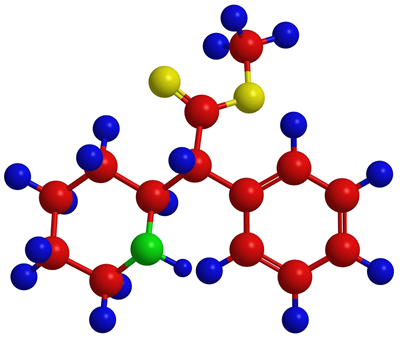New Cochrane Review Urges Caution in Prescribing Methylphenidate to Children
Abstract
A review group finds that while the stimulant reduces core ADHD symptoms, the overall quality of the evidence remains low due to a high risk of bias and few data on the long-term effects of the medication.
Methylphenidate medications such as Ritalin have been a mainstay in treating children with attention-deficit/hyperactivity disorder (ADHD) for decades, and numerous trials and meta-analyses have provided evidence that they are effective.

Methylphenidate is one of the leading medications given to children with ADHD, but a comprehensive new assessment from the Cochrane Review Group urges more judicious use of this drug.
However, the latest review of the evidence—undertaken by the Cochrane Review Group—urges that despite the large amount of methylphenidate research, clinicians should still be cautious when prescribing this drug.
The Cochrane Review Group noted that the combined evidence in its analysis—which included 185 trials published through February 2015 and over 12,000 children and adolescents—did show that methylphenidate improves some of the core symptoms of ADHD such as hyperactivity, impulsivity, and difficulty concentrating.
But, according to study coauthor Camilla Groth, M.D., a pediatrician at Herlev University in Denmark, the overall quality of the evidence was low. “Some children might benefit, but we still don’t know which patients will do so and to what degree. What we still need are large, well-conducted trials in order to clarify the risks versus the benefits for this widely used treatment.”
One of the major issues with the existing studies, which the Cochrane reviewers believed lowered their confidence in the results, was that it would not be difficult for the researchers involved in the clinical trials to know whether the children were taking an active drug or placebo, given the many side effects of stimulant medications.
“The possibility of clinician bias is a problem in many pharmaceutical trials because participants in the experimental drug group experience more adverse events that compromise the blinding,” said study coauthor Morris Zwi, M.B.B.Ch., a consulting psychiatrist at Islington Child and Adolescent Mental Health Service in London.
“For methylphenidate, the risk of bias due to lack of blinding might be increased due to the relative high number of observable nonserious adverse events,” he told Psychiatric News.
Zwi added that the studies reviewed also encountered other potential biases, including problems with the randomization process, selective reporting of outcomes, and bias in patient selection. As such, the reviewers considered all 185 trials as having a high risk of bias.
Going forward, the study authors suggested that researchers conducting methylphenidate trials should consider using nocebos instead of placebos as controls. Nocebos do not contain an active ingredient but can mimic side effects comparable with those associated with methylphenidate. Due to ethical concerns, however, the reviewers acknowledged that any such trials would first have to be carried out in adults with ADHD.
Another issue is that 147 of the 185 studies assessed were crossover trials, in which patients receiving the drug or placebo switch at some point in the study. According to the review group, the data collected after the switch are typically less reliable, and therefore the effective study duration is usually half of the length of the trial.
As a result, the average follow-up period for all of the studies was 75 days, which the reviewers noted fails to provide solid long-term data for either symptom management or side effects.
The review group noted that given this lack of long-term follow-up, clinicians considering methylphenidate treatment for a new patient may want to prescribe the medication only for a maximum of three months and carefully monitor both benefits and harms. If there is no evidence of clear improvements or patients taking the medication report harmful side effects, clinicians are encouraged to seek an alternative treatment for patients with ADHD.
As this particular review only focused on methylphenidate medications, Zwi and Groth told Psychiatric News that they cannot say whether other stimulants should be considered as alternatives, but they encourage the updating of systematic reviews for all childhood ADHD medications.
Nonetheless, they said, given some indication of symptom improvement and the fact that methylphenidate is not associated with any serious adverse events, parents and/or providers should not rush to discontinue or change prescriptions if children on the medication appear to respond to and tolerate the treatment. ■



